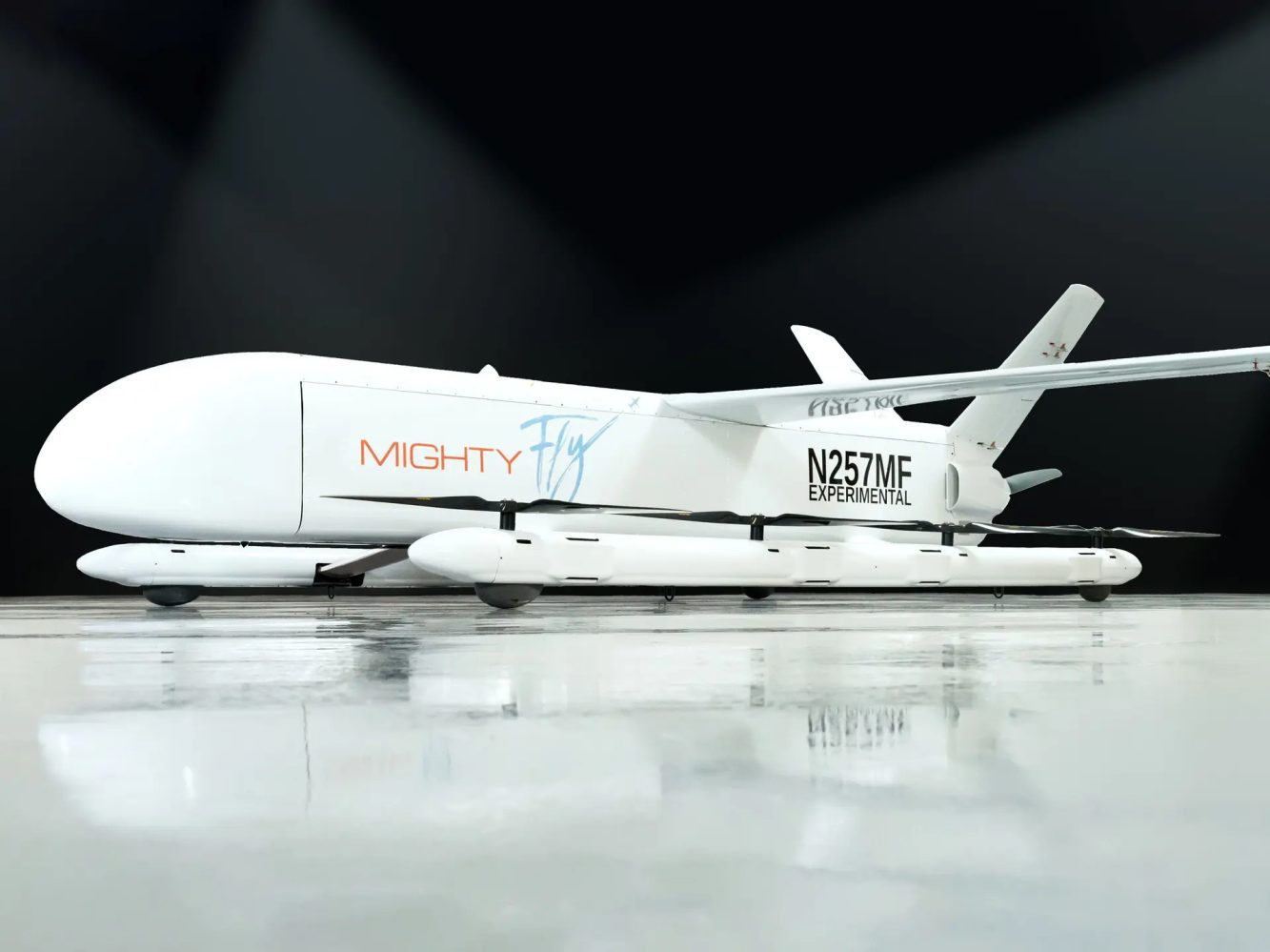
San Francisco Bay Area cargo UAV developer MightyFly has unveiled the second generation of its hybrid-powered vertical takeoff and landing (VTOL) drone, Cento, which it plans to produce and operate for end-to-end freight services on flights of up to 600 miles.
Formerly known as the potentially wise-crack generating MF-100, the new Cento version of MightyFly’s cargo drone has already begun testing following the Federal Aviation Administration (FAA) issuing the craft a Special Airworthiness Certificate and a Certificate of Authorization (COA) for long-range operation. The company says the approval to begin demonstrations of autonomous VTOL flights of up to 600 miles with 100 pounds of freight aboard is “unprecedented in the industry.”
Founded in 2019, MightyFly is wasting no time in getting its innovative approach to air freight transport aloft.
Mightyfly says presentation of its Centro cargo drone comes less than two years since the company raised $5.1M seed funding for the second-generation VTOL, and just nine months after its initial concept stage. The 13.1 x 16.7-foot autonomous UAV is made up of a high wing carbon fiber airframe, eight electric vertical lift fans, one forward propulsion propeller, and a 6 x 1 x 1- foot internal payload bay that can hold 96 small USPS packages.
The cargo drone’s hybrid powertrain shifts between an internal combustion engine that recharges depleted batteries that will otherwise be used for flight, enabling Centro to make multiple deliveries along a route, or single long-haul run, that MightyFly will operate from start to finish as a seamless service to customers.
Read: LCI’s order of up to 40 Elroy cargo drones lifts total book value to over $2 billion
The relatively compact size of the craft requires limited landing and takeoff space, while an automated conveyor belt handling loading and offloading of packages obviates the need for human intervention.
MightyFly CEO Manal Habib says the drone’s long range, automation, and operational flexibility will allow Cento to offer companies an entirely new alternative to managing their cargo delivery needs to traditional hub-and-spoke models.
“If there is one lesson we’ve learned from supply chain bottlenecks and logistics over the past few years, it’s that we need flexibility – to be able to adapt to various cargo volumes and expedited timing or urgencies,” says Habib. “Medical companies, just-in-time manufacturing, and the 51% of all retailers that now provide same-day delivery need a faster and more affordable way to get their goods and perishables to the final destination.”
In addition to using its FAA authorization to work Cento through the certification process, MightyFly says the Certificate of Authorization will allow it to accelerate development of the cargo drone through test flights across an increased airspace of 230-square miles, and altitudes of up to 5,000 feet.
FTC: We use income earning auto affiliate links. More.



Comments